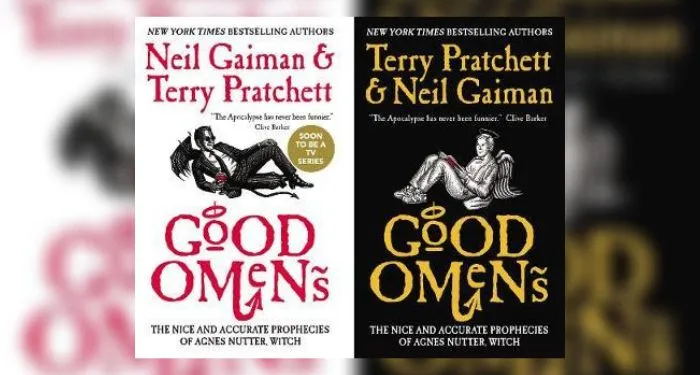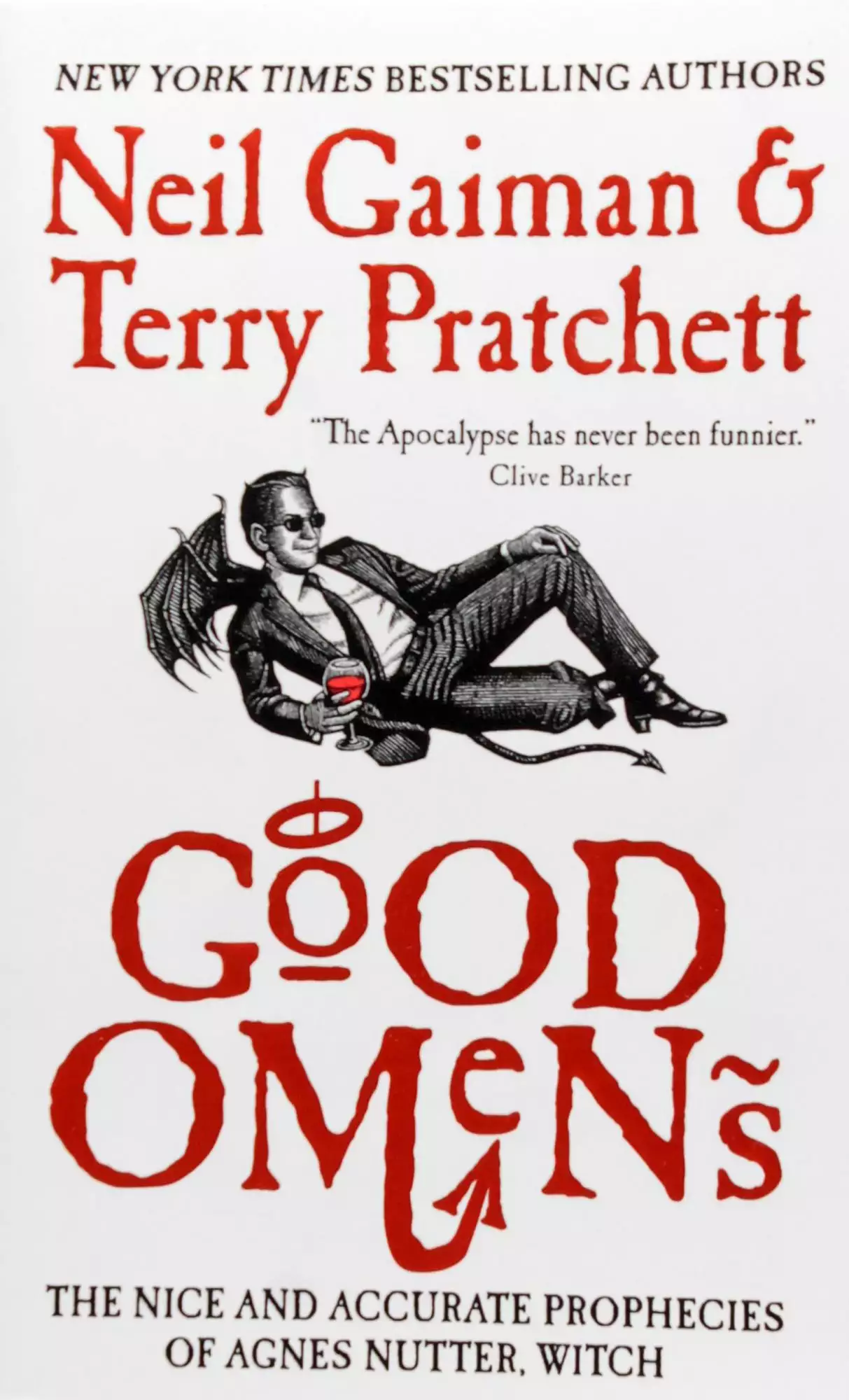
How GOOD OMENS Gave Me Hope As A Trans College Student
Lately, I’ve been thinking about the way the books we read shape us and, even in fantastical settings, give us windows into possibilities for understanding and working through our own challenges. I think that’s one of the most meaningful things a story can do, especially for those who feel they’ve been put in unbearable circumstances. As chaplain Vanessa Zoltan writes in her memoir Praying with Jane Eyre: Reflections on Reading as a Sacred Practice, “A willingness to survive is about believing in the possibility of a better future. Survival is about hope.”
Good Omens, the apocalyptic satire novel by Terry Pratchett and Neil Gaiman, is one of those books for me. It came into my life when I was at a crossroads that I didn’t know how to pass. I was a college student who had recently come out as a transgender man, trying to reconcile my religious upbringing and search for spiritual meaning with my queerness. I couldn’t get rid of either; they were inherent parts of me. Yet bringing them together seemed impossible.
I attended BYU, a Mormon university in Northern Utah in the years directly following two queer historical milestones, one wonderful and one terrible. Gay marriage was legalized across the United States in 2015. And several months after this ruling, the Latter-Day Saint church would announce its baptism ban for children of LGBTQ parents (later reversed in 2019, in part because of member backlash).
At this time, the queer student group USGA was not allowed to hold meetings on campus. The few LGBTQ books available at the university library were accessible only on hold from the restricted section — among other books with such disturbing histories or subjects that it sent a message to gay students that they were unwelcome there.
I certainly felt that way, suspicious that the only reason I was allowed there at all was because they hadn’t ironed out policies to expel transgender students just yet, a hunch since proven correct.
The faith I’d grown up with taught me to recognize the divine worth in every person, including that everyone deserved to be treated with compassion. I believed that in the deepest part of my heart, and I still do. But the way BYU administration treated its queer students was anything else. Our motives for attending the university, our faith, our morality, and our worth as human beings were constantly questioned.
Often it felt as if I were walking a tightrope under threat of expulsion that many people suspected or even hoped I would fall from. I just felt so alone. I prayed a lot and I started to attend support groups for transgender people raised in the church. But while both brought me comfort, they didn’t always provide clear answers about how I was to move forward in the short term. I worried that I would make the wrong decision.
It was 2017 when I found Good Omens at the library — not in the restricted section, despite its ribbing at the more bureaucratic side of religion and its description of the character Aziraphale as appearing to be “gayer than a treeful of monkeys on nitrous oxide.”
Aziraphale is an interesting character — he’s an angel less interested in bringing about the apocalypse than caring for his antiquarian bookshop. In some very small way, I could relate to the inner conflict he seemed to face. He had a very specific role that he’d been trained his whole life to fill, things he was told he was supposed to want without given a reason why. It felt more like bureaucratic dogma than God’s plan. And so, it didn’t ring true to him.
Ultimately he finds companionship in Crowley, another character who is likewise an outcast and doesn’t understand why it’s his duty to fill a role that doesn’t make sense to him from a universal perspective. Hearing that the apocalypse is nigh, the two team up to subvert it and, despite both of their semi-incompetence as far as their specific hands in the plot goes, they succeed. Whatever God’s ineffable plan is, it’s ultimately beyond both of their understandings, but it seems to align with their instincts: that there is value in treating the world we live in and others with compassion now instead of throwing everyone and everything under the bus with the hand-waving notion that “the world will end, anyways.”
What does any of this have to resonate with some queer college student trying to find their place in the world? For start, it made me feel as if I didn’t have to have all the answers now about what I wanted my future to look like. Nobody has all of the answers. It was even possible that I could go my whole life without finding the answers to the specific questions I had.
It struck me then that while Aziraphale didn’t fully understand what his purpose was in the grand scheme of things, he seemed to feel closer to understanding when he was with those he cared about. That year, I met other transgender students grappling with similar conflicts as me. Not only did I feel less alone, but I felt closer to some greater understanding of what matters in life the more I connected with them. Life is confusing and difficult, but the closest I’ve ever gotten to an understanding of “the infinite,” so to speak, is when spending time with those I love and doing what I can to help them with their own journeys.
A lot has happened in my life since I first read Good Omens six years ago. Against the odds, I finished my degree. I met someone who loves me for who I am, which I never thought I would find, and got married. I write stories of my own now that I hope will bring comfort and escapism to people who need it. Things after college have been confusing in their own ways, but I’m more content with uncertainty than I was then. I try to take each day as it comes and, when challenges arise, do what I believe is the right thing and learn from my mistakes. That’s all any of us can do.
Reading Good Omens didn’t resolve all of the conflicts I was feeling as a student. That’s not really the purpose of it; as I said earlier, it’s satire. Its main purpose is to poke fun and entertain, if anything. But it helped me feel less alone in the knowledge that pretty much no one understands life in its entirety.
Earth is an absurd place. But by trying to treat others kindly and recognizing that is more important than trying to solve unanswerable questions, maybe I’ll understand at least a little more someday.














